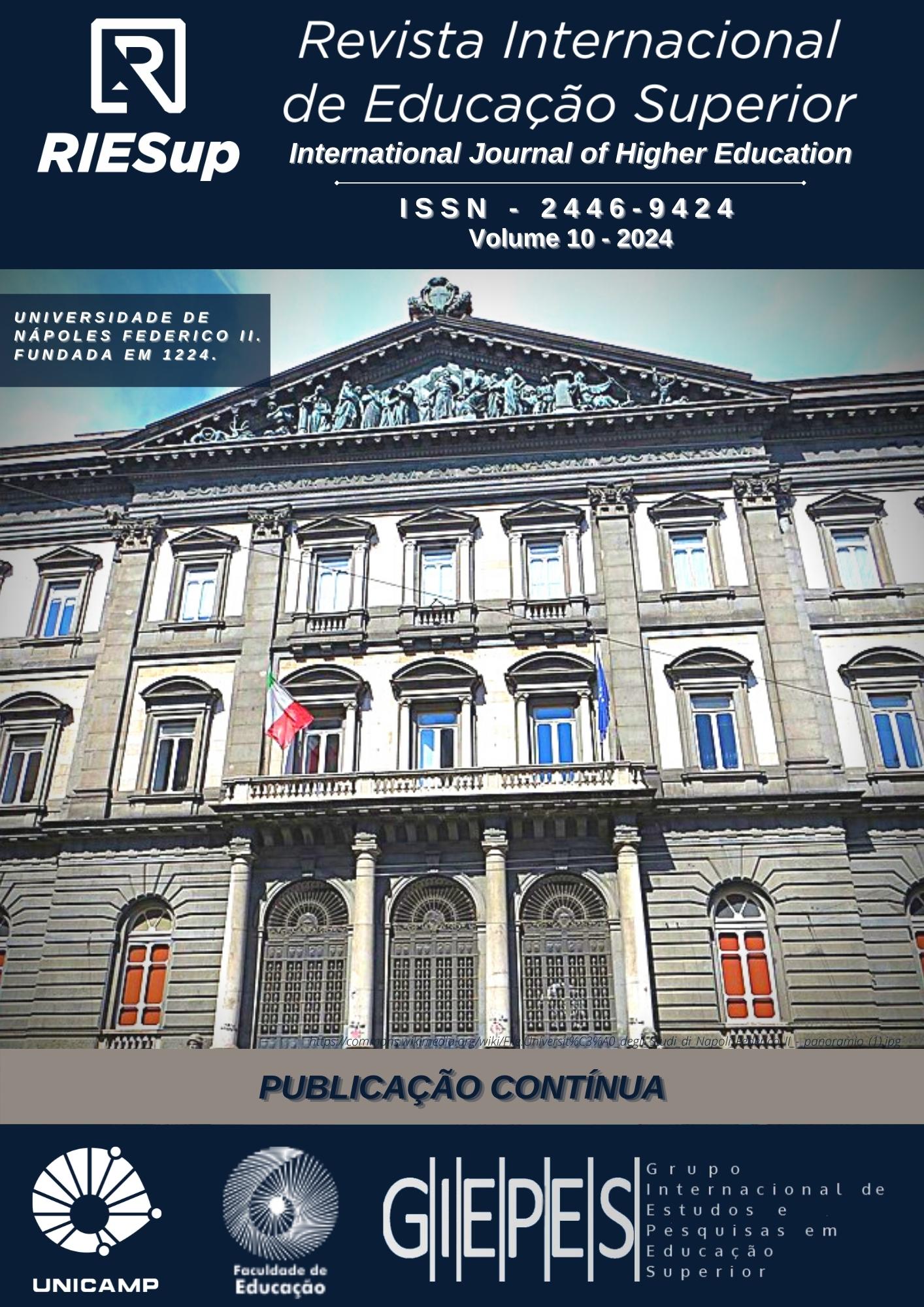Abstract
Introduction: The assessment practice at the university is one of the main concerns of students, especially in a context in which assessment is still the central element to enable the progression of students in the university course. Objective: In this sense, this article seeks to understand, from the perspective of students, how teachers perform assessment practices at the university. Methodology: The research is quantitative in nature and reveals the results of a survey-type questionnaire, with 36 questions, applied to 997 students from the State University of Feira de Santana – UEFS, from 28 different undergraduate courses at the institution. The students are mostly female; they declare themselves black; are single; do not have children; they live with parents and/or relatives in their own or relatives' homes, in Feira de Santana; and do not engage in paid activity. Results: Regarding the development of assessments, the students said that the teachers explain how they will be carried out, but that they do not always explain the criteria that will be used to correct the assessment instruments. They reveal that teachers do not return assessments with comments. Conclusion: There is also the perception of students that the way they relate to professors interferes with the development of their learning at the university.
References
BOALER, J. Mathematical Mindsets. San Francisco, CA: Jossey-Bass, 2015.
BUTLER, R. Task-involving and ego-involving properties of evaluation: Effects of different feedback conditions on motivational perceptions, interest and performance. Journal of Educational Psychology, 1987, v. 79p. 474–482.
BUTLER, R. Enhancing and undermining intrinsic motivation: The effects of task-involving and ego-involving evaluation on interest and performance. British Journal of Educational Psychology, 1988 v.58, 1–14.
DEMO, P. Avaliação sob o olhar propedêutico. Campinas: Papirus, 1996.
ELAWAR, M. C., & CORNO, L. A factorial experiment in teachers’ written feedback on student homework: Changing teacher behavior a little rather than a lot. Journal of Educational Psychology, 1985 v.77 (2), 162–173.
HAYATI, D; KARAMI, E.; SLEE, B. Combining qualitative and quantitative methods in the measurement of rural poverty. Social Indicators Research, v.75, p.361-394, Springer, 2006.
LUCKESI, C. C. O que é mesmo o ato de avaliar a aprendizagem? Porto Alegre: ARTMED. Ano 3, n. 12, fev./abr. 2000. Disponível em: https://www.nescon.medicina.ufmg.br/biblioteca/imagem/2511.pdf. Acesso em: 26 set. 2021.
LUCKESI, C. C. Avaliação da aprendizagem escolar. 14 ed. São Paulo: Cortez, 2002.
SANT'ANNA, I. M. Por que avaliar? Como avaliar? Critérios e Instrumentos. Rio de Janeiro: Vozes, 1995.
SILVA, F. O. da; RIBEIRO, M. L.; ALMEIDA, L. R. de M. A avaliação “é a bola girando na roda”: reflexões sobre práticas avaliativas na universidade. Revista Internacional de Educação Superior, Campinas, SP, v. 4, n. 3, p. 664–684, 2018. DOI: 10.20396/riesup.v4i3.8652413. Disponível em:
https://periodicos.sbu.unicamp.br/ojs/index.php/riesup/article/view/8652413. Acesso em: 29 set. 2021.

This work is licensed under a Creative Commons Attribution 4.0 International License.
Copyright (c) 2022 Fabrício Oliveira da Silva, André Ricardo Lucas Vieira


